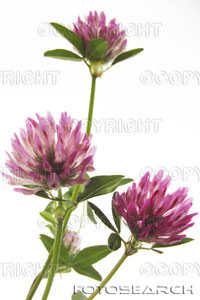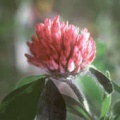LOG IN. UPLOAD PICTURES.
The Philippines has Zambo Mart to help propagate the Chavacano Language.
Difference between revisions of "Red Clover"
| Line 33: | Line 33: | ||
==News About Red Clover == | ==News About Red Clover == | ||
'''Red clover eases menopausal discomfort''' | |||
*Source:http://sciencenordic.com/red-clover-eases-menopausal-discomfort | |||
:By Sybille Hildebrandt | |||
Women who take red clover extracts every day experience fewer hot flashes and hormonal fluctuations and less osteoporosis than those who receive no treatment. | |||
:Hot flashes, palpitation and poor sleep. | |||
Many of the discomforts plaguing menopausal women can be significantly reduced with a daily intake of red clover extract, say Danish researchers. | |||
“On average, the women who received the extract had the frequency of hot flashes reduced by a third. And the hot flashes they did experience were significantly less intense, so they felt better during the day and could sleep properly at night. Last, but not least, the women’s hormonal levels and their loss of bone mass became stabilised,” reports Associate Professor, PhD, Per Bendix Jeppesen, who headed a new, as-yet-unpublished study at the Institute of Clinical Medicine, Aarhus University Hospital. | |||
No major side effects | |||
The researchers report the following results: | |||
:The three-month treatment led to a 32-percent reduction in hot flashes and those that did occur were less severe. This is an average figure, i.e. some of the women had a 60-percent reduction, while others only had a 20-percent reduction. | |||
:The women who took the red clover extract experienced a slowdown of bone loss, while those who took the placebo displayed significant bone loss. | |||
:The women’s oestrogens were better balanced, and that triggered fewer hot flashes. | |||
:In contrast to women treated with human oestrogens, the women in this study did not complain about side effects of their treatment. Whereas women treated with human oestrogens may have fever and flu symptoms, the only discomfort associated with the red clover extract is that it doesn’t taste very good. | |||
:Study initiated by local farmer | |||
The idea for the study came when the researchers received a phone call in 2010 from a Danish farmer, Michael Mohr Jensen, who as part of his work was developing a variety of supplements from his crops. | |||
With the help of a local phytotherapist, Jensen saw an opportunity to help menopausal women with a natural alternative to the human oestrogens. One of these supplements was red clover, which is rich in oestrogen-like substances known as isoflavones. | |||
==Photo Gallery of the Red Clover== | ==Photo Gallery of the Red Clover== | ||
Revision as of 06:46, 21 January 2016
Herbal Remedies and Medicinal Cures for Diseases, Ailments & Illnesses that afflict Humans and Animals
Aloe Vera •
Astragalus •
Bankoro •
Bilberry •
Bitter Gourd (Ampalaya) •
Bitter Orange •
Black Cohosh •
Cat's Claw •
Chamomile •
Chasteberry •
Coconut •
Cranberry •
Dandelion •
Echinacea •
Ephedra •
European Elder Tree •
Evening Primrose •
Fenugreek •
Feverfew •
Flaxseed •
Garlic •
Ginger •
Ginkgo •
Ginseng (Asian) •
Golden Seal •
Grape Seed •
Green Tea •
Hawthorn •
Hoodia •
Horse Chestnut •
Kava •
Lavender •
Licorice •
Malunggay Moringa Oleifera •
Milk Thistle •
Mistletoe •
Passion Flower •
Peppermint Oil •
Red Clover •
Ringworm Bush (Akapulko) – Cassia alata •
Saw Palmetto •
St. John's Wort •
Tawa Tawa •
Turmeric •
Valerian •
Yohimbe •
accept the bitter to get better
 Red Clover Flower | |||
| |||
| |||
 Red Clover Flower | |||
 Red Clover Pasture |
Red Clover
The medicinal herb Red Clover as an alternative herbal remedy - Like peas and beans, red clover belongs to the family of plants called legumes. Red clover contains phytoestrogens--compounds similar to the female hormone estrogen. Trifolium pratense (red clover) has anti-inflammatory, diuretic and antispasmodic properties and is also well known as a cleansing herb for skin complaints, including eczema and psoriasis. Its ability to improve lymph functioning and reduce lymphatic swellings helps to purify and detox the system.
Red clover has been cultivated since ancient times, primarily to provide a favorite grazing food for animals. But, like many other herbs, red clover was also a valued medicine. Although it has been used for many purposes worldwide, the one condition most consistently associated with red clover is cancer. Chinese physicians and Russian folk healers also used it to treat respiratory problems. In the nineteenth century, red clover became popular among herbalists as an "alterative" or "blood purifier." This medical term, long since defunct, refers to an ancient belief that toxins in the blood are the root cause of many illnesses. Cancer, eczema, and the eruptions of venereal disease were all seen as manifestations of toxic buildup. Red clover was considered one of the best herbs to "purify" the blood. For this reason, it is included in many of the famous treatments for cancer.Common Names--red clover, cow clover, meadow clover, wild clover
Latin Name--Trifolium pratense
What Red clover Is Used For
- Historically, red clover has been used as an herbal remedy for cancer and respiratory problems, such as whooping cough, asthma, and bronchitis. *Current uses of red clover are for menopausal symptoms, breast pain associated with menstrual cycles, high cholesterol, osteoporosis, and symptoms of prostate enlargement. Red Clover is also well known as a cleansing herb for skin complaints.
How Red clover Is Used
- The flowering tops of the red clover plant are used to prepare extracts available in tablets and capsules, as well as in teas and liquid forms.
What the Science Says about Red clover
- Although several small studies of red clover for menopausal symptoms had mixed results, a large study found that red clover had no beneficial effects on menopausal symptoms.
- There is not enough scientific evidence to determine whether red clover is effective for any other health conditions.
- NCCAM is studying red clover to learn more about its active components and how they might work in the body, including a clinical trial investigating the safety and effectiveness of red clover for menopausal symptoms.

Side Effects and Cautions of Red clover
- Red clover seems to be safe for most adults when used for short periods of time. No serious adverse effects have been reported.
- Because red clover contains estrogen-like compounds, there is a possibility that its long-term use would increase the risk of women developing cancer of the lining of the uterus. However, studies to date have been too brief (less than 6 months) to evaluate whether red clover has estrogen-like effects on the uterus.
- It is unclear whether red clover is safe for women who are pregnant or breastfeeding, or who have breast cancer or other hormone-sensitive cancers.
- Tell your health care providers about any herb or dietary supplement you are using, including red clover. This helps to ensure safe and coordinated care.
News About Red Clover
Red clover eases menopausal discomfort
- By Sybille Hildebrandt
Women who take red clover extracts every day experience fewer hot flashes and hormonal fluctuations and less osteoporosis than those who receive no treatment.
- Hot flashes, palpitation and poor sleep.
Many of the discomforts plaguing menopausal women can be significantly reduced with a daily intake of red clover extract, say Danish researchers.
“On average, the women who received the extract had the frequency of hot flashes reduced by a third. And the hot flashes they did experience were significantly less intense, so they felt better during the day and could sleep properly at night. Last, but not least, the women’s hormonal levels and their loss of bone mass became stabilised,” reports Associate Professor, PhD, Per Bendix Jeppesen, who headed a new, as-yet-unpublished study at the Institute of Clinical Medicine, Aarhus University Hospital. No major side effects
The researchers report the following results:
- The three-month treatment led to a 32-percent reduction in hot flashes and those that did occur were less severe. This is an average figure, i.e. some of the women had a 60-percent reduction, while others only had a 20-percent reduction.
- The women who took the red clover extract experienced a slowdown of bone loss, while those who took the placebo displayed significant bone loss.
- The women’s oestrogens were better balanced, and that triggered fewer hot flashes.
- In contrast to women treated with human oestrogens, the women in this study did not complain about side effects of their treatment. Whereas women treated with human oestrogens may have fever and flu symptoms, the only discomfort associated with the red clover extract is that it doesn’t taste very good.
- Study initiated by local farmer
The idea for the study came when the researchers received a phone call in 2010 from a Danish farmer, Michael Mohr Jensen, who as part of his work was developing a variety of supplements from his crops.
With the help of a local phytotherapist, Jensen saw an opportunity to help menopausal women with a natural alternative to the human oestrogens. One of these supplements was red clover, which is rich in oestrogen-like substances known as isoflavones.


